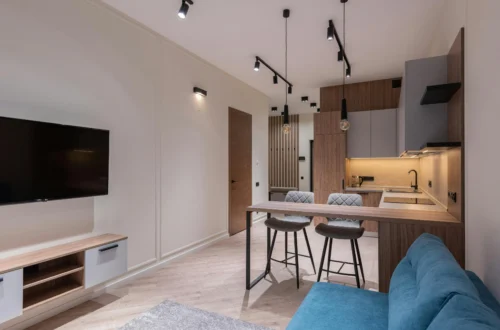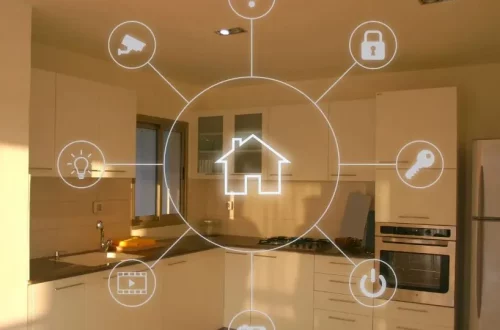Barcelona is a very attractive city for tourism and, therefore, also for investment in tourist apartments. However, if you are the owner of a property with a tourist license or are planning to obtain one, it is important to know which taxes you must pay to regularise your activity.
With the start of the 2025 Income Tax campaign, which began in April 2025, it is especially important to understand all tax obligations related to tourist apartments.
1. VAT
One of the most common doubts among owners is whether it is necessary to declare VAT on the expenses and income generated by the apartment. According to the VAT law (LIVA), tourist accommodations where the landlord does not provide hotel-like services are exempt from VAT. Let’s take a closer look at the services:

Services for which VAT must be declared
In general, VAT must be declared for tourist accommodations that provide some of the following complementary services typical of the hotel industry. These services are characteristic of lodging activity. They are the following:
- Reception and continuous assistance to the tenant
- Periodic cleaning of the accommodation
- Periodic change of bed and bath linens
- Luggage storage
- Laundry service
- Newspaper service
- Reservation services
- Food and restaurant services
If this is your case and you provide any of these services, you would not be exempt from declaring VAT and would have to pay the reduced rate of 10%, just like a hotel establishment.
Services for which VAT does not need to be declared
On the other hand, if your tourist rental does not provide any of the above-mentioned services but does provide some of the following, you are exempt from declaring VAT to the Tax Agency.
- Cleaning service at the beginning and end of the agreed stay with the guests
- Linen change service at the beginning and end of the agreed stay with the guests
- Cleaning of the building’s common areas (stairs, entrance, elevator), as well as the building’s grounds (green areas, entrance gate, surrounding sidewalks and streets)
- Occasional technical assistance and maintenance. For example, fixing plumbing or electrical issues
However, not declaring VAT also means you cannot deduct the VAT from related expenses. Even so, you will still have to pay the Property Transfer Tax (ITP) applicable to each autonomous community.
Remember that in Catalonia, the ITP for urban leases is 0.5% of the agreed rent and is self-assessed using form 600.
2. Personal Income Tax (IRPF)

As with VAT declaration, the taxation of IRPF again depends on the services you provide as an owner. Therefore, if you offer any hotel-like services, they will be reported in your IRPF declaration as business income. However, if you do not offer any lodging services, the Tax Agency considers it as real estate capital income.
Generally speaking, most tourist apartments are considered real estate capital income. Therefore, in these cases, if you are the owner of the tourist apartment, you, as the property holder, must declare the difference between gross income and deductible expenses from your holiday rental in your IRPF declaration. Here are some examples of deductible expenses related to the activity that you can claim:
- Community fees
- Property Tax (IBI)
- Utilities (water, electricity, gas, internet)
- Maintenance and repairs
- Mortgage interest
- Furniture and appliances
- Platform commissions (Airbnb, Booking, etc.)
- Cleaning services
- Advertising and declarations
- Depreciation of the property (3% annually) and of the furniture (up to 10%)
That’s the net result of the declaration. However, the 60% reduction provided for in the IRPF Law does not apply, since tourist apartments do not meet a permanent housing need, but rather a temporary one.
According to recent tax authority guidance, periods in which the property was not rented, but was available for rent, are also considered real estate capital income (and not imputed income) if you can prove it was advertised on platforms. Otherwise, it continues to be considered imputed income.
Practical Tips
To manage and optimise your IRPF return efficiently, it is advisable to:
- Use an Excel spreadsheet to track income and expenses
- Keep receipts and invoices
- Run income tax simulations before filing
- Do an annual tax review to make sure nothing is left out
- Consult a specialised tax advisor
3. IAE
The Economic Activities Tax (IAE) is part of the Spanish tax system and is managed by local councils. This tax directly applies to the carrying out of any type of economic activity, both by individuals and companies.

IAE for Tourist Rental Apartments
With Lodging Services
If your rental offers any of the services for which VAT must be charged, your economic activity is classified as “Non-hotel Tourist Lodging” in group 685 within group 68 of the IAE rate schedule.
Without Lodging Services
If you do not offer any hotel-like services, your economic activity is recorded as “Housing Rental”. However, if the result of this activity is less than €601.01 annually, you are exempt from paying IAE, although you must still declare the income from your rental as part of your annual income tax return.
IAE with a Managing Agency
If you hand over your apartment to a third-party company to manage and operate as tourist accommodation, then your rental activity is classified in the IAE as “rental of industrial premises and other leases N.E.C.”
4. Information Obligations: Form 179
Since 2018, it has been mandatory to report your tourist property. As part of this obligation, you must submit Form 179, which digital platforms must send to the Tax Agency. The information that must be included in this document is:
- Owner of the property
- Owner of the right under which the property is rented (if different from the property owner)
- Property identification and cadastral reference
- Number of days the property was used for tourist purposes
- Amount received by the leasing party
- Contract number assigned by the intermediary
- Start date of the lease
- Date of the intermediation
- Payment method used
Note that the Tax Agency may perform checks based on this data, so it is essential to declare it in your Income Tax return and ensure it matches this information.

5. IEET – Tax on Stays in Tourist Establishments
The IEET, also known as the tourist tax, is paid by the tourist upon arrival at the accommodation. Even so, you, as the owner, are responsible for collecting it and submitting it to the Catalan Tax Agency.
Failing to declare this tax correctly can lead to significant fines, so it is essential to keep control.
6. Why You Should Be Advised by an Expert Tourist Rental Agency
If you are the owner of an apartment and are interested in renting it out, we recommend that you rely on the support of a company specialised in the sector, so that they can help you manage the property and advise you on your apartment’s taxes. At AB Apartment Barcelona, we are specialists in short- and mid-term rental management—contact us to learn more!

If you found this helpful, let us know by leaving a comment. If you have more questions or would like more detailed and personalized advice, don’t hesitate to contact us at AB Apartment. We’ll be happy to help!






